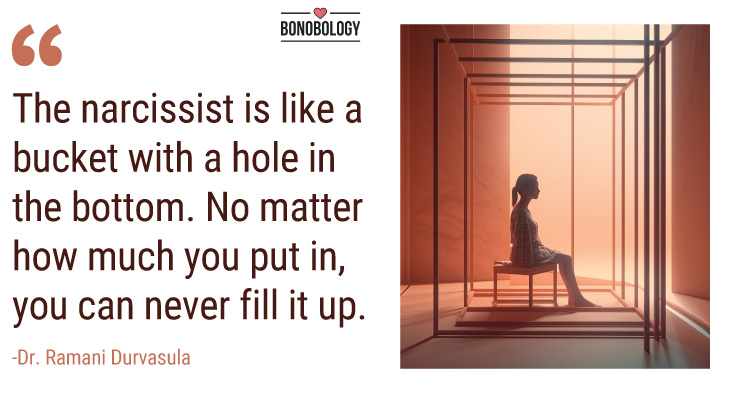There are many ways to save a marriage when it starts to fall apart.
- Relationship books
- Couples therapy
- Retreats
- Tantric karma healing…
Is there a “best” way? In my decade as a licensed therapist, I’ve found that some methods are more effective than others.
For example, most studies claim that marriage counseling has a 70% success rate. However, when you dive deeper into the numbers, you see a different story play out. Success in that study was defined by a positive emotional outcome. It had nothing to do with whether the marriages were saved or not.
For example, another follow-up study found that 50% of distressed couples will have an improved, more satisfying marriage for 4+ years after counseling. An additional 10% to 20% of couples will stay together even though they remain unhappy.
Divorce rates after marriage counseling differ greatly. There is, on average, a 40% post-counseling divorce rate. When you do the math here, only half of the average couples will get somewhat of a positive result after investing 4 years into therapy. One session is usually $100. So you have to spend $4,400 a year X 4 years = $17,600. To have some sort of improvement investment, you still have a 40% chance of divorcing. Is there a better way, and why is therapy ineffective?
Why Therapy Doesn’t Always Yield Results
Table of Contents
When I used to sit across from couples, I would notice a few trends that consistently arose.
- I could only spend one hour a week helping them
Imagine that you had a serious and fatal illness that was slowly killing you. Then you were told that you could only visit the doctor to help treat that illness for an hour a week. You know that if you spent more time with the doctor, your illness would heal faster.
- Marriage counseling is problem-focused
We are trained to look at past wounds, attachment trauma, and problems in the relationship. This is somewhat important, but it delves far too much into the past. This is what a typical session would look like for me and a struggling couple.
“Okay guys, we just spoke about your huge argument over the weekend. This clearly comes from both of your attachment wounds growing up. Let’s dive deeper into those traumas next week.”
Both the couple and I would leave the session feeling disappointed and empty. This is because we spent the whole hour cutting off branches of a tree.
Related Reading: Marriage Counseling – 15 Goals That Should Be Addressed Says Therapist
We needed to go to the root.
As an example, when husbands hear the reasons why their wife wants to leave them, it’s usually money problems, spending too much time at work, and a lack of intimacy. So naturally, the man starts coming home early with a bouquet to spice things up.
This only infuriates the wife more because she sees it as manipulative. He is failing to see the real reason the marriage is so far gone and how to fix it.
Uncovering and fixing the root issues leads to;
- Improved communication
- Increased intimacy
- Mutual appreciation
So, how do you find your marriage’s root issues, and what solutions do you use to heal them?
You must start by diagnosing the unmet needs of your partner. Here are signs of unmet needs:
- Most conversations escalate into arguments and bickering without a clear cause
- Your partner begins having separate areas of their life without telling you
- They lie about trivial matters, indicating a lack of trust or dissatisfaction
- 90% of the conversations center on practical conversations like the kids and financial issues
If one or even all of these occur in your relationship, then one CORE need is not being met. I call it “Unassailable Assistance”.
It means being entirely ready to help your partner when they need you. How often has your partner asked you to do them a small favor, and you said, “I’ll get to it.”
Time will go by, and you think your partner forgets, and maybe they consciously do. However, deep down, an emotional trigger has gone off, and they realize they cannot rely on you.
Not meeting this core need over time leads to;
- Emotional distance
- Lack of affection
- Diminished intimacy
- Increased bitterness
Meeting this need day by day leads to more psychological and emotional safety.
Let me share with you how Daniel turned his marriage around by meeting this core need with his wife after working with me. On our first call together, Daniel was panicking and almost in tears.
He told me how his wife had an emotional wall of ice in front of her. She told him, “The marriage is over, and you can do nothing about it.”
I helped him understand that she was in her right mind to feel that way, but it didn’t mean the marriage was over. I explained that deep down, she hoped he could make changes, and the fact that she didn’t file for divorce yet was his sign of hope.
He clearly identified her lack of “Unassailable Assistance” being met over the years. I, then, outlined the 3 key skills he needed to learn to get her back in the next 90 days.
Related Reading: 5 Couples Therapy Exercises You Can Try At Home
Three Essential Skills To Save Your Marriage
These three communication skills help fulfill your partner’s need for connection and safety. After those foundational needs are met, it serves as a springboard to make the marriage better than it has ever been before.

1. Emotional empathy vs. cognitive empathy
Did you know there is a good and bad type of empathy? Most people respond with emotional empathy. This involves feeling what your partner feels.
Whenever Daniel’s wife would get upset, he would feel upset too, and things would always end up worse. His wife never felt she could feel safe expressing and sharing her emotions because Daniel would always end up reacting.
Instead of Daniel getting upset when his wife does, I told him to simply reflect her emotions to her simply. I told him that when his wife gets annoyed at something he did, he should simply say, “You feel annoyed because (the reason why).”
That’s it!
You never have to solve her problems for her. Simply listen. She wants to be heard. This skill lets you understand your partner’s emotions without getting caught up. You can convey understanding by reflecting on her feelings, such as frustration or anger. If she sees that you understand her feelings, she will feel validated. Her validation will foster a calmer and more logical resolution to the problem.
2. The posture of curiosity
So often, we assume the ‘intent’ of our partner’s actions. This leads to misunderstandings and faulty assumptions. Instead, you need to take a more curious approach to your partner’s actions or motivations. Ask open-ended questions to understand their perspective.
Avoid personalizing their behavior and seeking insight into their needs and desires. This approach fosters compassion, empathy and builds a stronger connection. This is the problem my client Daniel faced when his wife said, “I love you, but I am no longer IN love with you.”
They were married for 17 years with two boys aged 16 and 19. He worked a good job, provided for his family, and thought everything was perfect. He knew he and his wife were slowly growing more and more distant, but he never imagined she would fall out of love with him.
He panicked and began searching online for answers.
The advice he found ranged from:
“Give her space and be more masculine” to “Smother her with love and daily affection.” This only made him more lost and confused. The more effort he put into showing his wife changes in himself, the more she seemed to pull away.
Related Reading: How To Save A Marriage When Only One Is Trying?
He felt completely hopeless.
The problem that Daniel and countless other people face when trying to save their marriage is not coming up with solutions. When Daniel’s wife shut down during a conversation, he always thought he had said something wrong.
Daniel started taking a posture of curiosity by asking his wife, “What is going on inside of you?” This led her to open up and say that she was actually scared to say the wrong thing to upset him in moments when she was quiet. This led to a better understanding between them.
3. Creating your container
Creating a container means having emotional resilience. It’s essential to hold a space for your partner’s emotions. Being overwhelmed, controlling, or dismissive will work against the relationship’s best interest. You provide the acceptance and support your partner needs by allowing them to express their feelings. This skill requires developing a solid mindset over your own emotions. If your partner senses that you are secure in your feelings, it will be easier for them to share theirs with you.
Over time, these three skills shifted the emotional scale back in Daniel’s favor with his wife. She began to get her needs met more consistently, and trust was rebuilt with a stronger foundation of safety. It only took 4 weeks for Daniel’s wife to change her mind about the marriage and want to work on things again with him.
Rebuild Your Marriage During A Separation With These 13 Tips
Your contribution does not constitute a charitable donation. It will allow Bonobology to continue bringing you new and up-to-date information in our pursuit of helping anyone in the world to learn how to do anything.























Featured
50 Questions For Premarital Counseling To Prep For Marriage
Why Is Marriage So Hard? Reasons And Ways To Make It Worthwhile
15 Signs Of Being Married To A Narcissist And How to Cope
Building Healthy Boundaries: The Key to Trust and Respect in Relationships
How To Deal With A Negative Spouse – 15 Expert-Backed Tips
What Is A Codependent Marriage? Signs, Causes, And Ways To Fix
7 Signs You Have A Verbally Abusive Wife And 6 Things You Can Do About It
Emotional Dumping Vs. Venting: Differences, Signs, And Examples
Husband Wife Relationship – 9 Expert Tips To Improve it
12 Hurtful Things You Or Your Partner Should Never Say To Each Other
7 Expert Tips To Resolve Conflict In A Marriage
Rediscover The Spark: How To Fall Back In Love With Your Partner
Roommate Marriage – Signs And How To Fix It
What To Do When Your Husband Belittles You
How To Deal With A Lying Husband?
Why Am I So Depressed And Lonely In My Marriage?
11 Signs You Have A Narcissistic Wife
21 Signs Of A Narcissistic Husband And How To Cope
7 Fundamentals Of Commitment In A Marriage
17 Positive Signs During Separation That Indicate Reconciliation